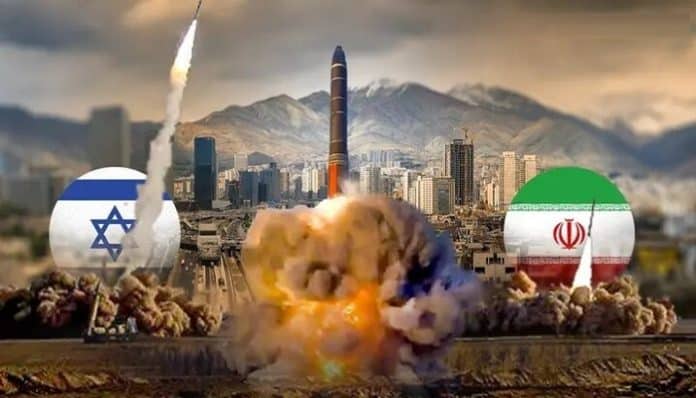PNN – During the 12-Day War, the Zionists were defeated in a battle in which they had hoped to achieve absolute victory, but they received an unprecedented strategic blow.
According to the report of Pakistan News Network, the Yemeni news website wrote in a report referring to the 12-day war between the Islamic Republic of Iran and the Zionist regime, which began after the regime’s brutal aggression on Iranian soil: This war was not just a fleeting, all-out military confrontation, but represented a unique moment that changed the rules of engagement in the region and reshaped regional deterrence and its alliances.
The article adds that Iran entered the war in defense of its sovereignty and legitimate right to possess nuclear and missile capabilities, and in the end, it managed to emerge victorious. In contrast, the Zionist enemy also faced defeat in various arenas, and in addition to damaging its image, its incompetence became apparent to everyone, and its domestic public opinion was shocked.
Read more:
Washington Post: The only way is to “negotiate with Iran”; Trump knows it too
The war began with the Zionist decision and ended at the request of the United States.
After a long period of threats and escalating tensions with the Islamic Republic of Iran, the Zionist regime launched its aggressive military operations against specific centers, Iranian scientists, and commanders, believing that this surprise attack could force Iranian officials to retreat or remain silent.
The Iranian reaction, however, was not what Tel Aviv had imagined. Tehran launched a massive and precise missile attack against the occupied territories, which disrupted the Israeli regime’s air defense systems.
Less than 72 hours later, the Zionist regime realized its strategic mistake and found itself exposed to widespread Iranian missile attacks that disrupted its military structure. For this reason, Tel Aviv, centered on Washington, began a series of communications and mediations in order to reduce the scale of the crisis on the ground through a quick ceasefire.
Iranian missiles hit and the Zionist enemy’s disastrous defeat
Despite the intensive attacks of the Zionist enemy during the first days, the regime was unable to inflict significant blows on Iran’s nuclear facilities or missile capabilities.
In contrast, the Iranians managed to accurately fire their missiles at the Israeli military and intelligence centers in the Negev and Ashdod regions, as well as power generation centers and air defense radars. These missiles passed through multi-layered defense systems and entered Tel Aviv airspace, which in itself was an unprecedented act.
The collapse of Zionist deterrence; when the Iron Dome was punctured
The biggest shock that the Zionist regime faced during this war was the collapse of the myth of the Zionist regime’s defense systems, which had been greatly exaggerated in previous years. In this war, it became clear that the Iron Dome and David’s Slings systems could not intercept Iranian missiles. This was even more evident in the case of missiles that had been produced in Tehran in recent years. These missiles hit sensitive targets in the Zionist regime.
Internal solidarity in Iran and division and division in Israel
One of the Zionist regime’s major calculations was to create an internal rift in Iran, which the Zionists had planned to achieve through cyber warfare or airstrikes against military or scientific commanders, but the result of this conspiracy was completely counterproductive.
While many of the Zionist regime’s spy networks were active inside Iran, Iranian security services managed to purge them during the war. The streets of Iran witnessed unprecedented demonstrations in support of the Islamic Republic’s sovereignty. The war actually created internal unity in Iran once again and raised the level of national consciousness of Iranians.
Conclusion
Iran did not win this war solely because it had high technological capabilities, but rather because it entered the war with confidence and emerged from it with greater solidarity and insistence on moving towards complete independence.
In contrast, the Zionist regime was completely shaken at the end of this war, facing political defeat, internal division, and a lack of public trust. The Zionists lost a battle in which they had hoped to achieve absolute victory, but they received an unprecedented strategic blow.


